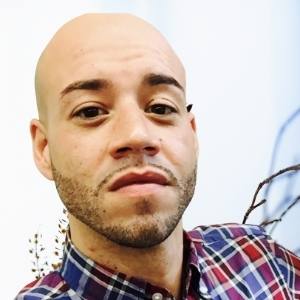 Like many teachers, school staff, and students, School Psychologist Ray Delgado, moved online when schools closed because of Covid-19. At first, he was concerned that mental health services wouldn’t translate well to teletherapy. However, it didn’t take long for him to discover that when the school team pulls together in unity, they could accomplish a great deal for their community – even from a distance.Delgado now serves in a new role as an account manager for E-Therapy. We recently had a chat to discuss teletherapy and the mental health needs of kids and their teachers, along with what every school psychologist should know right now.
Like many teachers, school staff, and students, School Psychologist Ray Delgado, moved online when schools closed because of Covid-19. At first, he was concerned that mental health services wouldn’t translate well to teletherapy. However, it didn’t take long for him to discover that when the school team pulls together in unity, they could accomplish a great deal for their community – even from a distance.Delgado now serves in a new role as an account manager for E-Therapy. We recently had a chat to discuss teletherapy and the mental health needs of kids and their teachers, along with what every school psychologist should know right now.
You have experienced the transition of mental health services from onsite to teletherapy firsthand. What’s your take on it? Do you think the online model really works?
Initially I was worried that mental health services from onsite to online would not reflect the fidelity and ethical standards that need to be followed. I quickly learned that was not the case. I was venturing into a new dynamic that so many others (e.g., teachers, students, parents) were experiencing for the first time as well.Ongoing communication via phone, zoom, text and emails is the key factor in making this work. I am able to provide the same level of services online that I would onsite. Students are often more engaged virtually as they are used to using technology for almost everything they do.
There is concern that many students with mental health issues have gone undetected during the pandemic. What can schools do to help identify students with mental health needs?
The pandemic has had a different level of impact across all age groups. It is important for schools to keep in communication with parents and students to continue to address our students’ social/emotional needs – not only from an academic perspective, but an emotional one as well.Some key factors that one can look at are lack of attendance, failure to complete assignments, and an overall lack of motivation. It is also important to take notice if a student’s writing during a class chat/assignment are underlying calls for help. For example, “Today was a sad day. I don’t feel happy”. These can be warning signs that a student may be expressing emotional distress throughout this pandemic.
Many school staff members are feeling totally overwhelmed at the moment. What is your advice for school employees on how to avoid burnout?
Take it one day at a time. The pandemic has thrown us all a learning curve. I want school staff members to feel that all their efforts are acknowledged and supported. As educators, we often worry about our students and forget our own mental health. My advice would be work together, and do as much as you can knowing that you are doing your best. Rely on your relationships with other staff members. Know that your administration is there to support you.
What is the most important thing that every school psychologist should know right now?
Nine-tenths of education is encouragement! Remember, that as school psychologists our goal is to provide students with the academic and social/emotional support to become the best individuals that they can be. Encourage your students to do their best even during uncertain times.Your work is valuable. Never let the switch from onsite to online counseling steer you away from fidelity, quality, and morally sound practice. Communication, communication, communication!! Sound communication with parents, teachers, and staff will give you the best road forward.
In the spirit of good mental health, let’s end on the bright side! What is something positive that you have learned or experienced because of the pandemic?
I have truly learned the meaning of UNITY! Everyone working with students has shown that when we unify and do what is best, anything is possible.  About Ray Delgado Ray Delgado M.S., PSY was raised in Brooklyn, NY. He attended undergraduate school at Morrisville State College in central New York. He earned his Masters in both School Psychology and School Building Leadership at Touro College in NYC. For almost 10 years, he worked as a bilingual Spanish school psychologist, with students across all ages and disabilities. Delgado currently lives in South Florida with his fiancé Mark. They have three crazy but adorable dogs who are their kids! They both enjoy being outdoors and anything beach related! His favorite hobby is gardening and reading.
About Ray Delgado Ray Delgado M.S., PSY was raised in Brooklyn, NY. He attended undergraduate school at Morrisville State College in central New York. He earned his Masters in both School Psychology and School Building Leadership at Touro College in NYC. For almost 10 years, he worked as a bilingual Spanish school psychologist, with students across all ages and disabilities. Delgado currently lives in South Florida with his fiancé Mark. They have three crazy but adorable dogs who are their kids! They both enjoy being outdoors and anything beach related! His favorite hobby is gardening and reading.
